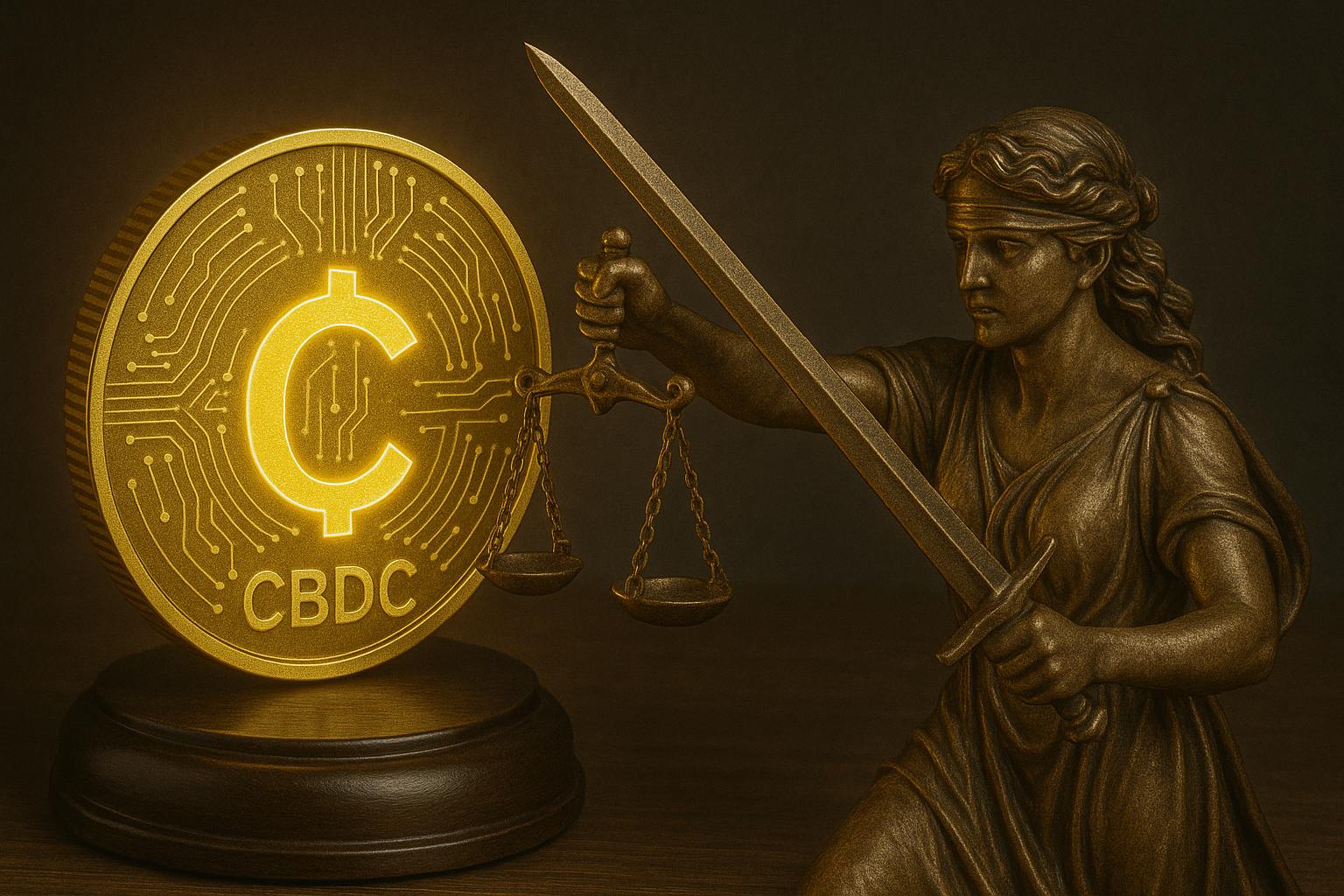Across the political spectrum, there is growing recognition that bitcoin and other cryptocurrencies can be a force for good by expanding economic freedom and challenging entrenched systems. But conversations around central bank digital currencies, or CBDCs, have not made the same progress.
Efforts to slow or block the creation of a CBDC have received little support among congressional Democrats—even though the risks involved strike at the heart of core progressive values. Indeed, for a movement that has consistently fought against surveillance, discrimination, and the abuse of government power, CBDCs should raise especially sharp concerns.
When the Department of Government Efficiency (DOGE) began combing through government databases, Representative Maxine Waters (D-CA) and Senator Elizabeth Warren (D-MA) voiced concerns about the dangers of unchecked access to Americans’ personal information. When the Trump administration expanded surveillance to capture financial transactions as small as $200, Texas state Senator Roland Gutierrez (D-San Antonio) warned that this policy was going to directly impact small businesses supporting their communities. And similarly, when remittances were targeted for bulk collections, Senator Ron Wyden (D-OR) raised concerns that this surveillance was “disproportionately affecting low-income, minority and immigrant communities.”
Taken together, these examples reveal an underlying civil-liberties problem: financial privacy is something to be protected, but financial surveillance has been steadily expanding. A CBDC would likely worsen this problem because it would lead to an unprecedented concentration of financial data—revealing where we go, what we believe, and whom we support—in a single, searchable hub.
In doing so, a CBDC represents a structural expansion of power that future administrations could weaponize for ideological policing, economic coercion, or political retaliation.
Chris Meserole of the Brookings Institution said it well when he warned that “A CBDC creates a new vector for abuse—not necessarily because it would be abused on day one, but because it could be.” Meserole further said, “We should not entrust that much control over our economic lives to a centralized authority, regardless of political party.”
The PATRIOT Act has been an illustrative example of the concern Meserole raised. Combatting terrorism is a worthy endeavor, but the same tools created to catch terrorists have since been used to surveil Americans domestically. For example, Know Your Customer requirements force financial institutions to collect identifying information and run checks on potential customers. A CBDC would only exacerbate this trend.
Now, even then, it may still be tempting to think such a tool could be used for good. For example, proponents argue that a CBDC could improve financial inclusion, and that is indeed a worthy goal. In fact, it’s likely for this reason that some Democrats have supported CBDCs.
Yet, at the same time, we must ask how such a plan would take shape.
Proponents often insist that a CBDC is needed to bring people who don’t have bank accounts into the financial system. But this technocratic framing misses the reality of who unbanked Americans are. After all, there is a world of difference between an impoverished family in west Baltimore struggling to put food on the table and a homesteader in rural Oregon choosing to live off the grid.
Survey results from the Federal Deposit Insurance Corporation (FDIC) show that 70 percent of the people without bank accounts are simply uninterested in having one. Those who do want one, however, cite concerns about minimum balance requirements, privacy, and trust. And it is because of those concerns that a CBDC would not be a solution.
Trust in government is at historic lows, banks collect private information due to government requirements, and balance requirements can be fixed through far simpler means.
There is no denying that the financial system can be improved. Recognizing this reality was part of the reason why bitcoin was launched in the first place and this recognition has continued to be one of the motivations for people building new solutions for their communities.
However, a CBDC is not the solution to these problems. At best, the rise of CBDCs represents a “fear of missing out” that swept over central bankers as cryptocurrencies rose in popularity. If that’s the case, the time, energy, and funding directed at CBDC development should be applied to far more pressing issues. At worst, this rise represents a recognition that CBDCs offer a new level of surveillance and control. And if that’s the case, CBDCs are an issue everyone should be concerned about.
In fact, it’s likely for this latter reasoning that authoritarian regimes have been pushing for CBDCs the most. The Human Rights Foundation’s CBDC Tracker has documented how regimes like China, Nigeria, and Russia have been the most aggressive in their attempts to get CBDCs in the hands of the public. Furthermore, these same regimes have a documented history of weaponizing the financial system against their opponents.
They key difference with a CBDC is that it will give those regimes direct control.
Despite troubling events, the United States maintains fundamental protections to prevent the worst of what happens abroad from happening here. Still, tomorrow is not guaranteed. Ensuring that the United States does not falter requires diligence. Part of that diligence is making sure the wrong tools don’t get into the wrong hands.
Progressives—who have long fought to curb state overreach, surveillance, and discriminatory enforcement—should likewise fight to stop the rise of CBDCs. The risks are real, and they affect everyone.

Nicholas Anthony is a policy analyst at the Cato Institute and a fellow at the Human Rights Foundation.




